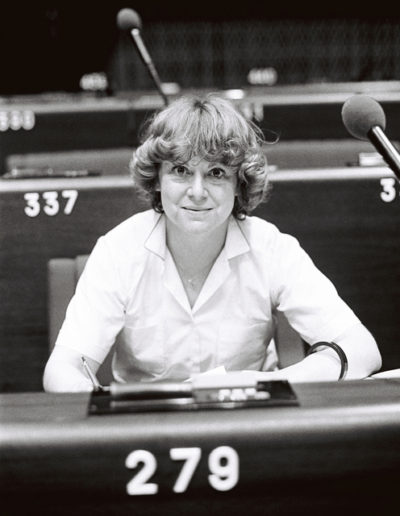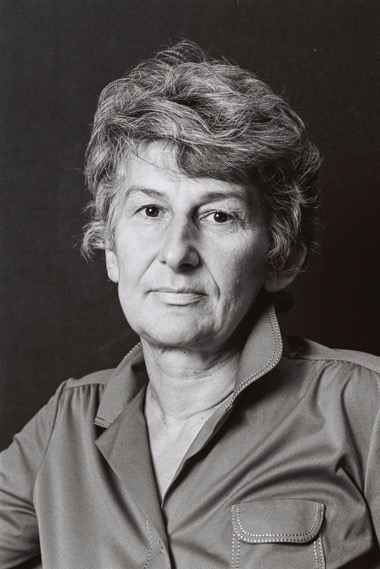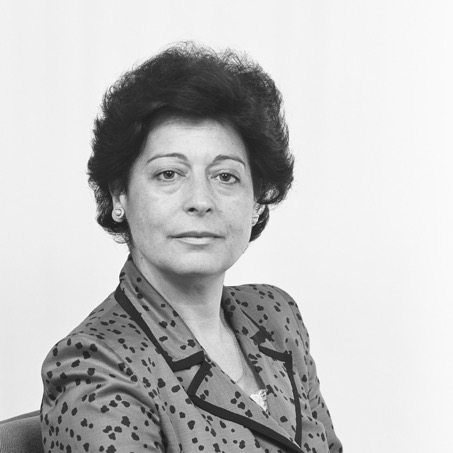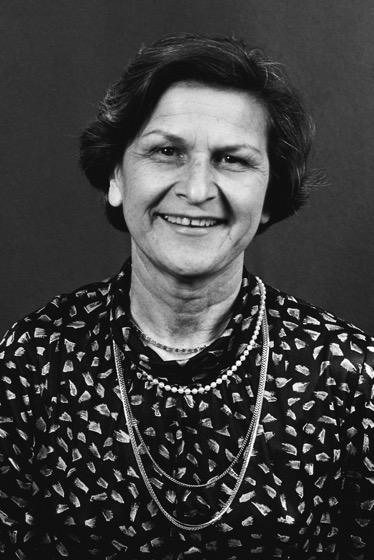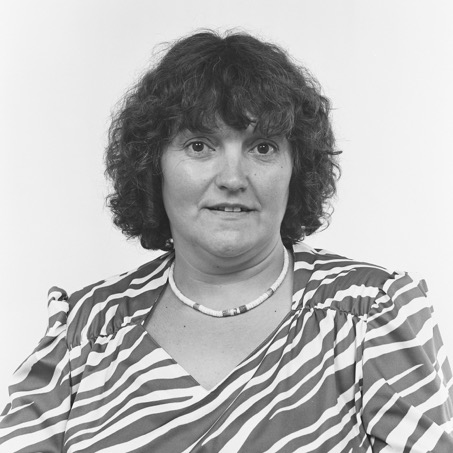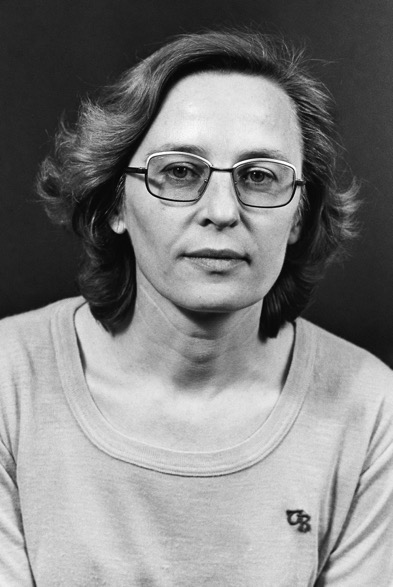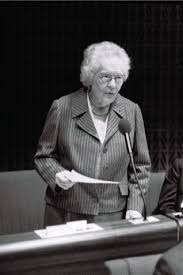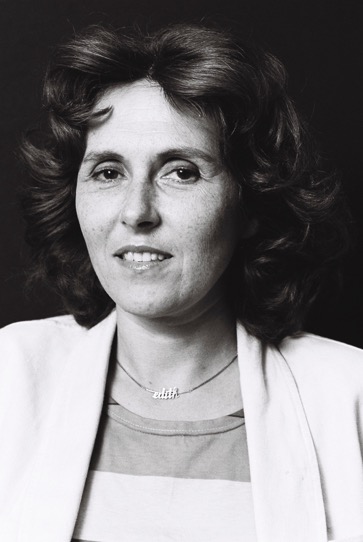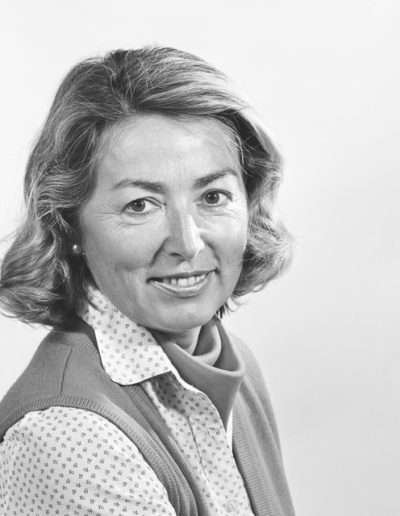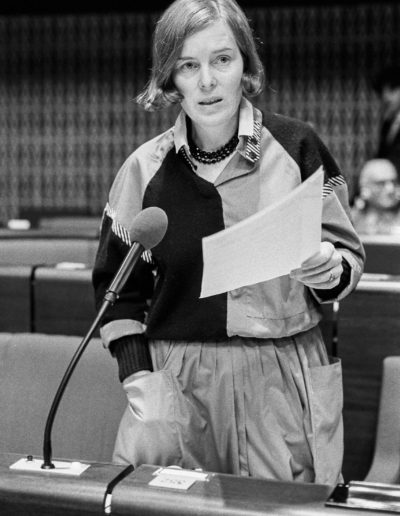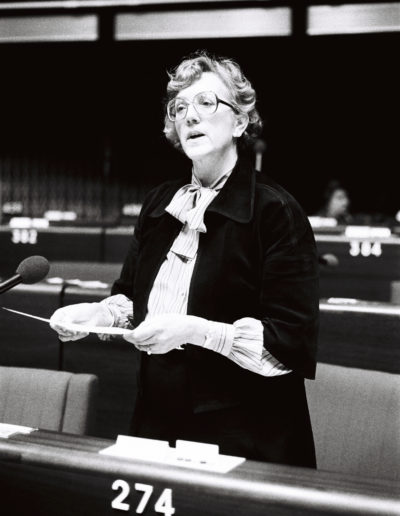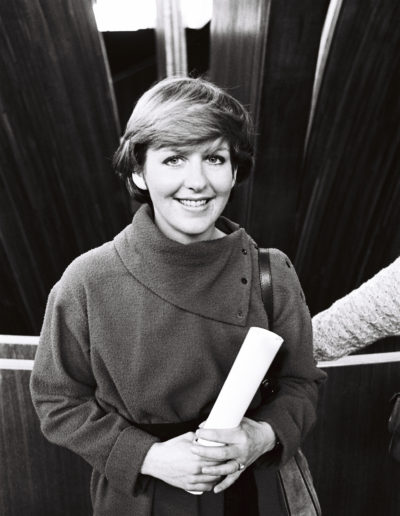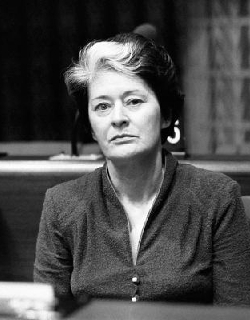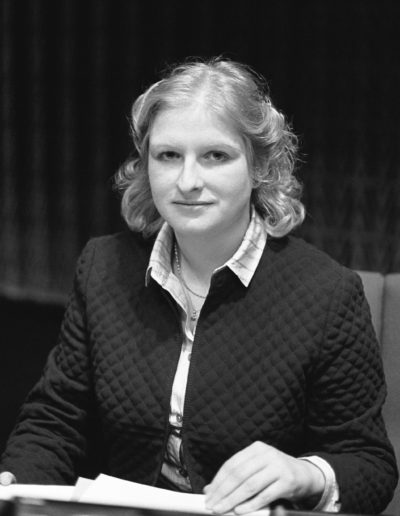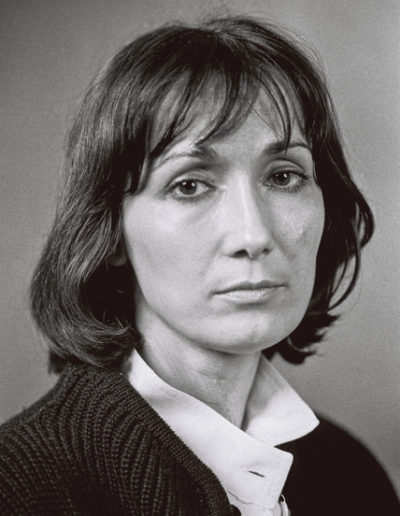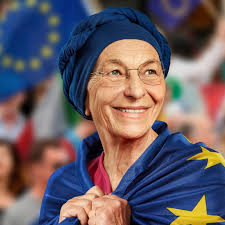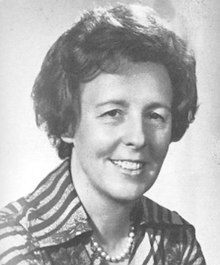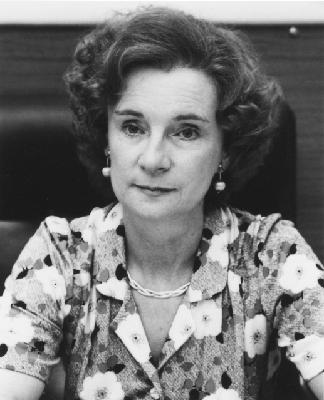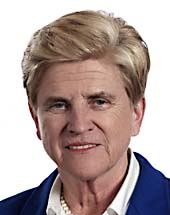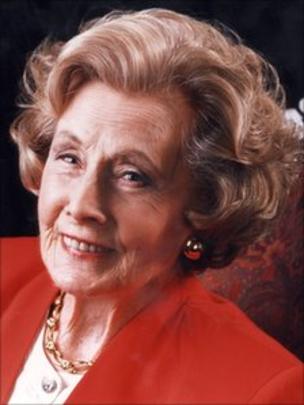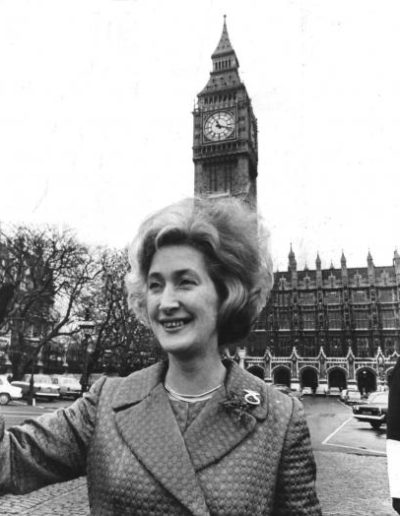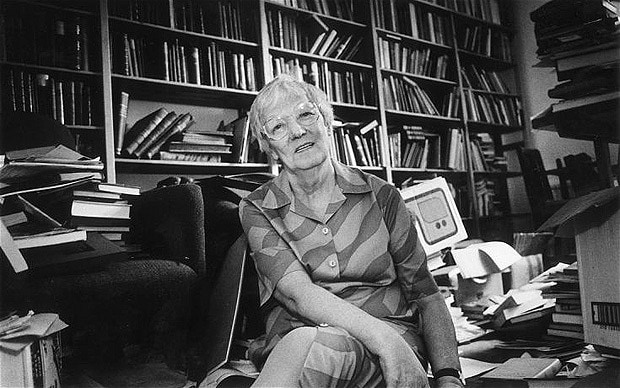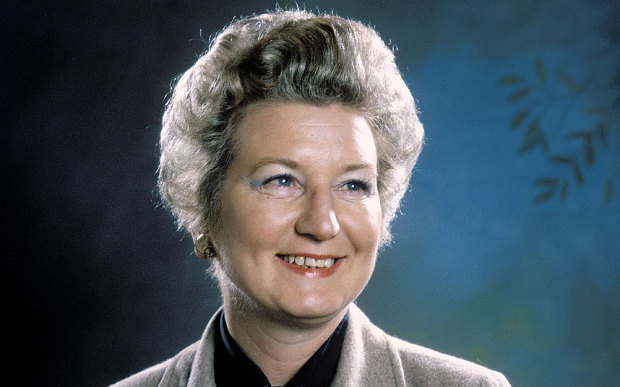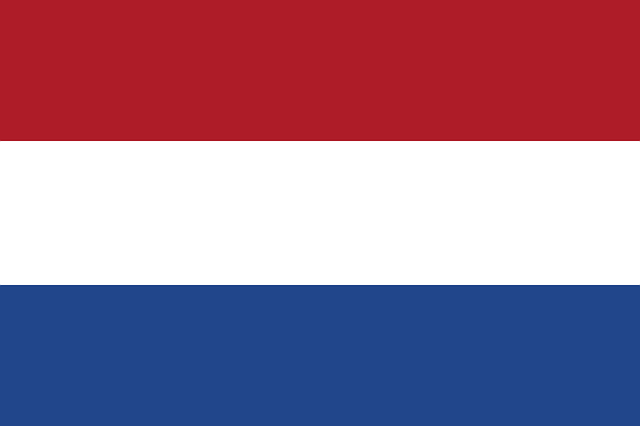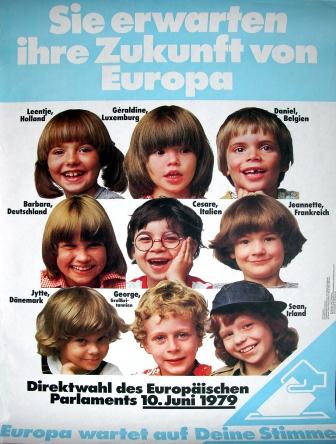Gallery 2: Women of The 1979 EU Parliament
1979 European Parliamentary Elections and Introduction to MEPs

“Whatever our political beliefs, we are all aware that this historic step, the election of the European Parliament by universal suffrage, has been taken at a crucial time for the people of the Community. All its member states are faced with three great challenges: the challenge of peace, the challenge of freedom and the challenge of prosperity, and it seems clear that they can only be met through the European dimension.”
– Simone Veil Acceptance Speech for Presidency of the EU Parliament,
17 July 1979
The 1979 European elections marked an important step in the life of the European parliament. They were the first direct parliamentary elections held across 9 European Community member states in which over 110 million citizens of Europe voted, electing 410 MEPs. The direct elections to the European assemble were held on 7 June 1979. The parliament was elected by universal suffrage and these elections were the first worldwide international elections in history thus becoming the first international parliamentary assembly elected directly by the people of its member states. Seats in the Parliament had been allocated to the states according to population, and in some cases were divided into constituencies, but members sat according to political groups.
Out of the 410 Members of Parliament (MEPs) elected by universal suffrage to the 1979 European Parliament, 343 were men and 67 were women. 16% (67) of the MEPs were women, an increase from 6% in previous parliaments with 2 women MEP’s from Belgium, 5 from Denmark, 12 from Germany, 18 from France, 2 from Ireland, 11 from Italy, 1 from Luxemburg, 5 from The Netherlands and 11 from the United Kingdom.
| Country | MEPs | Female | Male |
| Belgium | 24 | 2 | 22 |
| Denmark | 16 | 5 | 11 |
| France | 81 | 18 | 63 |
| West Germany | 81 | 12 | 69 |
| Ireland | 15 | 2 | 12 |
| Italy | 81 | 11 | 70 |
| Luxembourg | 6 | 1 | 5 |
| Netherlands | 25 | 5 | 20 |
| UK | 81 | 11 | 70 |
| Totals: | 410 | 67 | 343 |
Greece joined the EU in 1981 and held their elections in that year to vote on a delegation of MEPs from Greece who would join the European parliament Greece was allocated 24 seats in the European returning all men to the parliament.
Women of Europe – MEPs in 1979
Below are the names and images of all 67 women politicians elected to the 1979 European Parliament
Christiane Scrivener MEP – France
Christiane Scrivener born on September 1st, 1925 in Fries in Mulhouse, studied law, literature and psychology at the University of Paris. She then studied linguistics at Springfield University, Massachusetts, and finally took courses at Harvard Business School, from which she graduated. She began her professional career in the public service.
She initiated and successively served as the General Manager of several government agencies: in 1985, for the Association for the Organization of Internships in France, in 1969, of the Agency for Industrial and Economic Technical Cooperation (ACTIM) and in 1961 for the Association for the Organization of Technical Cooperation missions.
Nothing could really have predicted her involvement in politics in the government of Jacques Chirac in 1976. Indeed, when she was appointed Secretary of State for Consumer Affairs, it was unknown to the political class as she inaugurated this ministerial function. Only the English and Canadians had such a secretary of state at that time! She will be unyielding in her fight for legislative changes in economic liberalism and three laws will bear her name (Loi Scrinever): on credit, on consumer protection and information and on economic concentration and cartels – laws well-known to the consumer defense and even to the general public.
Christiane Scrivener was elected member of the European Parliament in 1979 on the Union pour la France en Europe (France), led by Simone Veil. She will be very regularly seen in the hemicycle of Strasbourg and will be nominated in 1984, General Rapporteur for the Community budget.
Dedicated to her political role in the European Union, in 1989 Christiane Scrivener took over from Claude Cheysson (former Minister of External Relations) as European Commissioner in Brussels until 1994. Member of the National Council for French Democracy, she led the Giscardian clubs. This close friend of Simone Veil also chaired the Avenir-Europe association. In 1984, she published a work entitled L’Europe, une bataille pour l’Avenir.
Her service to the greater European community earned her prestigious commendations from such countries as Belgium and Luxembourg, and she was named an officer of the Legion of Honor in 1995.
Christiane Scrivener MEP – France
Yvette Roudy MEP – France
Ivette Roudy was born in Saldou on April 10, 1929 in Pessac in the Gironde department.
Yvette Roudy is a woman of conviction and determination. Her bold stand in favor of women’s rights quickly made her an emblematic figure. “I always set the tone when I come in,” says Yvette Roudy, “I warn that I am both a feminist and a socialist, which, moreover, are completely linked since it is about power and the fight against inequalities! Anyway, it is definitely a political issue”.
But to restrict this “devoted friend”, as described by her inner circle of friends, to the sole cause of women would be a mistake. She is at the front line of campaigns against all injustices and all forms of intolerance. Raised in a modest family, she is a self-made woman.
She studied at Pessac in Gironde and attended a technical high school for young girls in Bordeaux. She pursued her secondary and higher studies by correspondence at the National Center for distance learning in Vanves. In addition to her job as a secretary, she embarked on English studies and obtained a bachelor’s degree. When she was 22, she married Pierre who was also studying English. They spent two years in Scotland where she mastered the language and became a translator. In 1964, she translated The Mystified Woman, (La Femme mystifiée) a feminist essay by the American Betty Friedan. Secretary General of the Democratic Women’s Movement, she was the founder and editor-in-chief of the movement’s journal, La Femme du XXème siècle (1964-1967). Yvette Roudy joined the Convention of Republican Institutions in 1965.
Her political career began in 1973, when she sat on the Steering Committee of the Socialist Party. From 1975 to 1977, Yvette Roudy was General Delegate of the Socialist Party for Training and, from 1977 to 1979, National Secretary for Women’s Action and member of the Executive Board. On June 10, 1979, she was an elected member of the European Parliament and chaired the ad hoc committee on Women’s Rights. From March 1981 to March 1986, she was appointed Minister Delegate to the Prime Minister, Minister for Women’s Rights in the governments of Pierre Mauroy and Laurent Fabius. She fought for the political empowerment of women: “The action that I have spearheaded for five years within the government, guided by common sense, justice and progress, is widely approved by the French. The world is on the move, so are women. Let’s not let go of this impetus carried by each one of us. Let’s not only believe in the impossible but strive to make our dreams come true! “
Her political investment resulted in six major laws:
• May 7, 1982: Law for Equal Access Rights to Public Employment
• July 10, 1982: Law on the Status of the Spouses of Craftsmen and Traders
• December 31, 1982: Induced Abortion Reimbursement Law
• July 13, 1983: Law on Professional equality between Men and Women
• December 22, 1984: Law for the Recovery of Spousal Support
• December 23, 1985: Law on Equal Rights for Spouses in Matrimonial Regimes
She failed to pass the 1983 anti-sexism law, while she was minister for Women’s Rights, facing a rough opposition from advertisers and defenders of the “freedom of the press”. However, her perseverance set in motion awareness campaigns, particularly on contraception in 1982, and launched vocational training and educational guidance (1984-1985).
In May 1987, she was appointed national delegate of the Socialist Party for the training of militants, in 1988, was made Vice-President of the International Socialist and mayor of Lisieux in 1989, “the election of which I am most proud” as she liked to remind everyone. In 1990, as a deputy of the Calvados, she voted for a text condemning sexual harassment.
Besides her numerous translations, she is also a woman of letters of which, La réussite de la femme (1969), La femme en marge (1975) prefaced by François Mitterrand, Les métiers et les conjoints (1981), A cause d’elles (1985) prefaced by Simone de Beauvoir, Mais de quoi ont-ils peur ? (1995).
Yvette Roudy MEP – France
Yvette Fuillet MEP – France
She was born in Marseille on March 1st.
Representing the French Socialist Party she was a member of the Socialist parliamentary group (of which she was also the treasurer) for two legislatures.
During her first term, she was Vice-President of the Regional Policy and Regional Planning Commission (January 21st, 1982 to July 23, 1984) and Vice-Chair for the Delegation for relations with the Maghreb countries (April 11, 1983 to July 23, 1984).
From 1979 to 1989, she was part of various committees: On the Environment, Public Health and Consumer Protection, On Budgetary Control, On Regional Policy and Regional Planning, in delegations for: Relations with Austria, Relations with Switzerland, Relations with the Maghreb countries (Algeria, Morocco, Tunisia).
She was made Chevalier de la Légion d’honneur on April 19, 2000.
She died on December 15, 2007 in l’Isle-sur-la-Sorgue.
Yvette Fuillet MEP – France
Sylvie Le Roux (MAYER) MEP – France
This researcher in marine biology, born in Nice on October 13, 1946, was elected three consecutive times to the European Parliament (1979 – 1994). As a member of the French Communist Party, Ms. Mayer had a seat with the Communist and Allies Group. During her second mandate she was Vice-President of the Commission for Youth, Culture, Education, Information and Sports.
She was also a member or deputy of the following committees: Inquiry Commission about the Situation of Women in Europe, Committee on the Environment, Public Health and Consumer Protection, Delegation for relations with Israel, Committee on Energy, Research and Technology, Committee on Agriculture, Fisheries and Rural Development, Committee on Budgetary Control, Delegation for Relations with Israel, delegation for relations with Finland…
She was responsible for the Social and Solidarity Economy (ESS) working group of the PCF (Parti Communiste français) and co-facilitator of Agir pour une, economie équitable.
She is part of the board of directors of the Gabriel-Péri Foundation.
Sylvie Mayer Leroux MEP – France
Simone Martin MEP – France
Born on April 14, 1943 in Tourcoing, Simone Martin also served three terms (1979-1994).
She started as a member of the Liberal and Democratic Group and by the middle of her second term she sat with the Liberal and Democratic Reformist Group till the end of her mandate.
She was part of the Union pour la France en Europe (France) during her first parliamentary term and then became a member of the Republican Party.
She was a member, substitute member and Vice-President and President of several committees throughout her mandate: on Regional Policy and Spatial Planning, on Inquiry on the Situation of Women in Europe, on Agriculture, on Agriculture, Fisheries and Food, on the Environment, on Public Health and Consumer Protection, on the Environment, Public Health and Consumer Protection, on Women’s Rights and in various delegations: For Relations with Japan, For relations with South Asian countries, For relations with Japan, For relations with member countries of ASEAN and the Republic of Korea (AIPO)
Simone Martin MEP – France
Nicole Chouraqui MEP – France
Nicole Chouraqui was born on March 18, 1938 in Algiers, Algeria, in a Pied-Noir Jewish family. She is the daughter of Félix Dahan and Marcelle Cohen-Bacri. Her childhood dream was to become an opera dancer, but she eventually studied economics and graduated from Sciences-Politiques in Paris. In 1960, she became a financial analyst, responsible for managing securities portfolios and company mergers, at the Paris Union Bank which was then the second French investment bank. In 1970, she was named director of the Office of Radio and Television of France (O.R.T.F.) and conceived a new business magazine.
On the political level, she was first involved with the Radical Party alongside Jean-Jacques Servan-Schreiber, then joined the Rassemblement pour la République (R.P.R) in support of Jacques Chirac. She was an elected member of the European Parliament for two terms in 1980 and 1984 representing the European Progressive Democrats group which she vice-chaired at one point. She was also a member of the Defense of the Interests of France in Europe and sat on the Committee on External Economic Relations.
During her second legislature she switched to the Group of the European Democrats, of which she was Vice-President until 1987. She continued as a member of the bureau and then of the Rassemblement pour la République. During her second term, she sat on the following commissions:
• Social Affairs and Employment,
• Budgetary Control
• Economic, Monetary and Industrial Policy and then as a deputy member of the same commission
And on the following Delegations for:
• Relations with Canada,
• Relations with the Maghreb Countries,
• Relations with Canada,
She was also appointed Councilor of the 16th arrondissement of Paris and Regional Councilor.
She died on August 31, 1987 in Paris. Since 1998, a street bears her name in the La Villette area of Paris.
Nicole Chouraqui MEP – France
Marie-Madeleine Dienesch MEP – France
Marie Madeleine DIENESCH was born on April 3, 1913 in Cairo (Egypt). She attended a school for girls in Neuilly-sur-Seine and later graduated in classical letters from the Faculty of Letters in Paris). From 1939 to 1945, she taught at the College of Saint-Brieuc.
As a member of the French Resistance, she joined the group “Libération Nord “. She decided to continue her political struggle and spontaneously registered on the Mouvement pour la République (M.P.R.) list of Côtes-du-Nord for the legislative elections of October 21, 1945 and then with the Rassemblement pour la République (R.P.R). In the seventies, Ms. Dienesch sat on the Côtes-du-Nord General Council, representing the canton of Plouguenast and was also a member of Brittany’s Regional Council. She was twice elected Deputy of the Côtes-du-Nord between 1945 and 1969 and 1972 and 1981. In those days, politics was a ‘men’s affair’ in a ‘traditional male environment’, as she often repeats. To be honest, she said to Jean-Pascal (author of ‘Female Deputies’) I love this battle, but more than that, I love to convince. Now a days we are respecting our ‘enemy’s’, themselves driven by sincere convictions. The people who attacked me, they were not socialists or communists, they are anti-feminists, people who doesn’t accept to see that women are taking new responsibilities. ‘
Marie-Madeleine Dienesch holds the current record of the longest career in the National Assembly (under the Fourth and Fifth Republic). She sat practically without interruption at the Palais-Bourbon from 1945 until 1981 On November 8, 1945, she was the first woman to be elected secretary of the National Assembly bureau and to chair the Committee on Cultural, Family and Social Affairs. She was constantly re-elected during the consecutive legislative elections: November 46, June 51, January 56, November 58 (when she was named Vice-President for one year), November 62, March 67, June 68, March 73, March 78.
In the legislative elections of 1958, she stood alone and drove a tough struggle against her left-wing opponents, earning her the image of a fighter. Over that period of twenty-six years in office, she focused on public health, on the situation of women, widows and war orphans, and in particular, national education and wrote thirty-three reports or opinions, submitted sixteen bills and eight motions for resolution.
She was also nominated Secretary of State: for National Education in 1968, for Social Affairs from 1968 to 1969, for Social Action and Rehabilitation from 1969 to 1972, to the Minister of Public Health heading the ministerial department of Social Action and Rehabilitation between 1972 and 1973, and finally for the Minister of Public Health and Social Security from 1973 to 1974. While she was presenting the financial report of the year, on November 16th, 1973 she said:
‘Our Politics must be based and will be based in the actions I wish to tribute, like the organisations that will be fighting to resolve problems and develop projects in different areas like the ‘Action Plan against the Slums ‘, the ‘Accommodation and Social Centre Federation’, the ‘Emergency aid centre ‘. (…) My ministry has already contributed a lot for this kind of projects, for the social integration by giving money support (subventions) and our support was almost double this year. ‘ She left the government for good in 1974.
Ms. Dienesch continued her brilliant career as Ambassador Extraordinary and Plenipotentiary in Luxembourg from 1975 to 1978 during the three years before her return to the National Assembly.
Also concerned by European issues, she held the international vice-presidency of the European Women’s Union, heading the French section from 1963 to 1969. Ms. Dienesch was then representative to the Assembly of the European Communities, elected to the list Défense des intérêts de la France en Europe (France) from July 17, 1979 to September 30, 1980.
After she gave up her mandate on May 22, 1981, “Mado”, as she was commonly called in central Brittany, addressed her friends of the constituency of Loudéac with these words:
” I devoted my time and my heart to serve you all. » Marie-Madeleine Dienesch was made Chevalier of the Legion of Honor.
After she retired from politics, she enjoyed poetry and literary criticism. She died on January 9, 1998 in Paris.
On October 19, 2016, a plaque in her honor (with the name of other resistance fighters and the first deputies Rachel Lempereur and Marie-Claude Vaillant-Couturier) was unveiled at the Palais Bourbon, seat of the National Assembly.
Marie-Madeleine Dienesch MEP – France
Marie-Jane Pruvot MEP – France
Born on December 13, 1922 in Pont l’Evêque in the Calvados. She served a single parliamentary term with the Liberal and Democratic Group from July 17, 1979 to July 23, 1984 as a member of the national party Union pour la France en Europe (France) from July 17, 1979 to July 27, 1984.
She also sat on the Youth, Culture, Education, Information and Sports Committee from July 20, 1979 to June 13, 1982, on the Environment, Public Health and Consumer Protection Commission between December 19, 1980 to January 20, 1982 and on the External Economic Relations Commission from January 21, 1982 to July 23, 1984.
Marie-Jane Pruvot MEP – France
Marie-Claude Vayssade MEP – France
Born on August 8, 1936 in Pierrepont in Meurthe et Moselle, she served three successive terms between 1979 and 1994.
As a member of the French Socialist party, she was an elected member of the Socialist parliamentary group between July 17, 1979 and July 27, 1984 and maintained her seat for her 3 legislatures.
She vice-chaired on the Rules of Procedure and Petitions Committee between July 20, 1979 and January 20, 1982, on the Inquiry Commission on the Situation of Women in Europe between January 21, 1982 and July 23, 1984 and on the Committee on Rules of Procedure and Petitions between June 4, 1983 and July 23, 1984.
She was a member of the Legal Commission, Rules and Petitions Committee and Delegation for Relations with ASEAN Member Countries and the ASEAN Inter-Parliamentary Organization (AIPO), between July 20, 1979 and July 11, 1979. April 1984.
She again chaired the Legal and Citizens’ Rights Commission during her second term and was a member of several committees such as the Women’s Rights Commission during the 2nd and 3rd terms.
Marie-Claude Vayssade MEP – France
Louise Moreau MEP – France
Louise Mont-Reynaud was born on January 29, 1921 in Grenoble, Isère.
An avid reader of Anatole France, Charles Péguy, Paul Valéry or René Char, a strong believer in the defense of democracy and tolerance, she aroused admiration, regardless of one’s political inclination. All her actions, involvement, were steeped in these two principles. Over the years, her righteousness, determination as well as her commitment as a resistance fighter, turned her into a “political figure”. She admits, loud and clear, that “the Liberation of Paris” was one of the best political memory to her. She obtained a license in science after five years of medical studies in Paris. Married to Pierre Moreau, an engineer and businessman, she became a corporate director. After he died prematurely when she was only forty, she decided to go into politics.
During the Occupation as a member of the Special Services of Free France (only nineteen when she joined General de Gaulle in London in August 1940), she played an active role in several missions (such as transporting military documents, weapons and ammunition), and in the Normandy landings with the allied forces. Her very rich and diversified political background led her to hold responsibilities with different ministries. It was on June 10, 1979 that Louise Moreau was elected to the European Parliament, an experience that will last till June 17, 1984.
She was also elected to the Assemblée Nationale in 1978, a mandate renewed until 1997 (with the general elections), then until her death. She was Vice-Chairman at the Assemblée Nationale from April 1st, 1984 to April 1st, 1985. She also headed or worked in several commissions: Commission on Production and Trade, on Foreign Affairs, of Inquiry on Illegal Immigration and Illegal Stay of Foreigners in France, Special Commission responsible for examining the draft law on adoption. A key figure in her region of the Alpes-Maritimes, she was mayor of Mandelieu-la-Napoule for three terms from 1971 to 1995. She obtained the 3945 Cross of War and the Rosette of the Resistance and was made officer of the Legion of Honor in a military capacity.
She died at Cochin hospital (Paris), on February 5, 2001. She was eighty years old.
Louise Moreau MEP – France
Jacqueline Hoffmann MEP – France
She was born in Bézier in the Hérault Department on December 26, 1943.
She was a Communist Member of the European Parliament from 1979 to 1986, then Member of the Yvelines from 1986 to 1988.
When Jacqueline Hoffmann started her job as a welder at the Escaut establishments, she only had her primary school certificate. Her involvement in the Communist Youth of France and the Union of Young Girls of France gave her a taste for politics. She became a Communist Party activist at the age of 17 when she was a delegate of the General Confederation of Labor (C.G.T.) of staff and member of the Works Council. She joined the French Communist Party (PCF) and became a member of the board of the Yvelines PCF federation in 1970, then a member of the central committee in 1972 in charge of health, social protection and family issues. Unsuccessful at the elections of 1981, Ms. Hoffmann headed the PC list and was the only one elected at the elections of March 16, 1986.
This woman of deep convictions has been a member of the Communist Party’s political office since 1987.
Her first election was European: in 1979, she was the first female worker elected to the European Parliament and re-elected from 1983 to 1986.
In 1994, at the suggestion of the then Prime Minister Édouard Balladur, she was appointed member of the Economic and Social Council (CES) as an expert with regard to her long experience in the field and has been a member since then.
Member of the Commission for Cultural, Family and Social Affairs at the National Assembly, she was attentive to economic issues, labor law and family affairs. In this spirit, on December 4, 1986, she filed a bill for the Freedom and Dignity of Families:
“Inequalities are growing in all areas and a new kind of poverty is emerging. Unemployment increase, decrease in purchasing power, wages and family allowances, growing precariousness and enforced part-time work cause an increase in the number of struggling families. (…) Starting today, in our sustained fight for social justice, we can make progress in the area of Family Rights. (…)This humanism is the basis of the Communists’ fight for a more human and just society.: socialism with a French touch”.
Jacqueline Hoffmann left the Palais-Bourbon in 1988. She is a mother of two, Rachel and Eric.
Jacqueline Hoffman MEP – France
Henriette Poirier MEP – France
Henriette Poirier was born on October 26, 1936 in Bordeaux to Henri Chassing and Régine Allo, two communist activists. Her mother was arrested in November 1940, interned in the Mérignac camp from which she escaped. Arrested a second time on March 24, 1944 in Châtellerault, tortured, she was deported to Ravensbruck and was released at the end of the war. Two of her uncles, Louis and Roger, took part in a fight in Spain with the International Brigades. Only Roger returned in 1938 but is apprehended by the French Police and handed over to the Germans as hostage and shot on October 24, 1941 at the Souge camp.
Nicknamed Cany, Henriette became a member of the central committee of the French Communist Party, leader of the Gironde Federation of the PCF, Regional Councilor and Municipal Councilor of Floirac.
She was elected to the European Parliament on July 17, 1979 for a single term till July 23, 1984 with the Communist Allied Group. She also sat on the Committee on External Relations from July 20, 1979 to July 23, 1984.
In the last part of her life, she recalls the painful reminder of the Souge shooting: “Young people share sufficient generosity in their heart to pursue the values of the martyrs of Souge; let us find the right communication mode to interact with them so that the collective memory remains vivid.”
Henriette was married to Guy Poirier who was also a teacher. They have two daughters, Sylvie and Mireille, and three grandchildren.
She died on February 24, 2010 in Bègles.
Henriette Poirier MEP – France
Gisèle Charzat MEP – France
Born on April 17, 1941, Paris-born Gisèle Charzat was elected at the European Parliament twice, July 17, 1979 to July 23, 1984 and July 24, 1984 to July 24, 1989, with the Progressive Alliance of Socialists and Democrats, representing the French Socialist Group.
Barely arrived in Strasbourg in 1979, she became an active member of the then called CERES (Centre d’études, de recherches et d’éducation socialiste – Mr. Jean-Pierre Chevènement’s political trend), later renamed Socialisme et République, pursuing her interest in energy problems. She faced a hostile environment when defending the French nuclear option. Ms. Charzat got more and more involved in oil issues, which raised her interest about the Middle East. When she joined the political commission in 1981, she set out to explore this region and summed up her findings in a study for the Socialist Group.
In February 1986, as a Rapporteur for the European Parliament, she presented her findings on a mission that took her through Egypt, Jordan, Lebanon and Israel. The report which called for respect for human rights in the territories occupied by Israel, for the recognition of UN resolutions by the PLO and for the organization of an international conference, was adopted almost unanimously, except for eleven parliamentarians around Mrs. Simone Veil, voting against.
Auditor at the Institut des Hautes Etudes de Défense Nationale, one of the few women to specialize in the “star wars” that is, in Defense and Security issues, she became State Councilor in extraordinary service, at the Court of Auditors, Honorary Prefect, member of the Economic and Social Council. She was President of the Road Safety and of the International Foundation of the Francophonie.
Gisèle Charzat MEP – France
Françoise Gaspard MEP – France
Françoise Gaspard was born on June 7, 1945 in Dreux.
She is seen as a determined woman, a person of conviction and ideal. The speech of this ENA graduate (1975-1977) is often marked by the anti-racist struggle and the denunciation of the populist excesses of the Far-Right. “In the election campaigns”, she declared one day in front of the hemicycle, “some candidates dare to say that immigrants eat our bread, steal our jobs and aggravate the imbalance of the nation’s social accounts. (…) Integration is an essential policy, a political affirmation necessary both to prepare the French to accept foreigners on our territory and to explain to immigrants that it is mandatory that they respect certain rules of the French society.”
Françoise Gaspard showed a tenacious involvement in the fight for the liberalization of abortion, for women’s rights and the abolition of the death penalty. After earning an aggregation in history and a diploma from the Institute of Political Studies of Paris, she undertakes to teach. She alternately became a technical collaborator at the University of Paris-Nanterre (1968-1970), lecturer at the Sorbonne (1970-1974) before teaching at the Lycée Michelet de Vanves (1971 -1974). She subsequently changed path and in June 1977 became an advisor to the administrative tribunal and was assigned in 1978 to Versailles’ Administrative Tribunal. She had a diversified political activity:
• from 1977 to 1983, she was elected mayor of Dreux, representing the Socialist Party,
• on June 10, 1979, she was elected to the Assembly of the European Communities.
• from 1981 to 1988, she served as deputy for Eure-et-Loir and Regional Councilor for the Center-Val de Loire region.
In the 1980s, she publicly revealed her homosexuality, becoming one of the first French politicians to do so and even married journalist Claude Servan-Schreiber in 2013.
She is a member of the sponsorship committee of the French Coordination of the Decade for the Culture of Peace and Non-violence.
In 1994, together with Colette Kreder, Françoise Gaspard founded Demain la parité, a network which regroups women’s associations to empower women in all fields. In 1991, she was appointed expert for France of the “Women in Decision Making” network set up by the European Commission.
Lecturer at the École des Hautes Études en Sciences sociales, she is the author of several books, notably: La fin des immigrés (1984) ; Une petite ville en France (1991) ; Au pouvoir, Citoyennes (1992) ; Le foulard et la République (1995), Femmes dans la prise de décision en France et en Europe (dir.), (1997), Comment les femmes changent la politique, co-written with Philippe Bataille, Paris, (1999, translated into Spanish and Arabic), Le Livre noir de la condition des femmes (2006).
Francoise Gaspard MEP – France
Simone Veil, European Parliament President 1979-1982
Ursula von der Leyen, German Politician and President of the European Commission since 1 December 2019
Edith Cresson MEP – France
Edith Cresson (born Campion) was born on January 27, 1934 in the upscale Paris suburb of Boulogne-Billancourt. Raised by a British nanny, she became fluent in the English language. She is the first woman in French history to serve as Prime Minister.
She earned a degree from the School of Business Studies for Young Girls and later a doctorate in demography. She married Jacques Cresson in 1959 and they have two daughters.
A successful businesswoman, she moved to politics in 1965 in the wake of François Mitterrand and worked vigorously in his failed presidential campaign of that year against Charles de Gaulle. She ran unsuccessfully for a parliamentary seat in 1975 but was subsequently elected mayor of Thuré (1977-1983), member of the European Parliament (1979–81), and mayor of Châtellerault (1983).
After Mitterrand’s election to the presidency in 1981, Cresson was appointed to several traditionally “male” ministries. She served first as Minister of Agriculture (1981-1983), then as Minister of External Trade (1983-1986), of Tourism (1983-1984), as Minister of Foreign Trade and Industry (1984-1986), and finally Minister of European Affairs (1988-1990). During her two-year mandate, she signed the Schengen agreements. She was three times elected a deputy to the Assemblée Nationale from the Vienne province (1981, 1986 and 1988).
She resigned from the government on October 3, 1990, to work with the Schneider group as a consultant on international development. She tackled difficult issues such as matters related to relocation, to the reform of the status of dockworkers, to the opening of stores on Sundays, to health expenditures, vocational training and apprenticeship.
When Michel Rocard resigned as Prime Minister in 1991, her friend President Mitterrand appointed her to the prime ministerial post on May 25, 1991. She assembled a cabinet of 29 members of which 5 women, three to ministerial posts (Labor, Development and Youth & Sports). Known for her combativeness and outspokenness, she sought to strengthen France’s industrial power and to “protect” French and European products from the inroads of Japanese and American products. She also aimed to reduce social inequities.
She often made controversial comments and soon became strongly unpopular. Diplomatically, her outspokenness was creating unease in international circles. The rising unemployment and declining public support prompted Mitterrand to replace her in April 1992 after she had been in office less than a year. She has so far spent the shortest time in office for any French Prime Minister of the Fifth Republic.
From 1992 to 1994, consulting and international cooperation occupied Edith Cresson’s entire time at the head of Services, Industries, Strategies, International and Environment (Sisie).
In 1995 Mitterrand appointed Cresson to serve as Commissioner for Science, Research and Development to the European Commission. In 1996 she launched the pilot action “European Voluntary Service” with the main aim of promoting the involvement of young Europeans in a volunteer program throughout the European Union. Some of her subsequent decisions elicited controversy and criticism, as did her inaction to correct known financial irregularities. Cresson and the entire European Commission resigned in 1999 because of alleged fraud and corruption. Charges of corruption against her and several former staff members came in 2003, although they were reduced the following year. In 2006 she was found guilty of blatant favoritism she showed to a friend and misconduct; however, no penalty or punishment was decreed.
Edith Cresson is a member of the Council of Women World Leaders (as is Angela Merkel), an International network of current and former women presidents and prime ministers, whose mission is to mobilize the highest-level women leaders globally for collective action on issues of critical importance to women and equitable development.
Edith Cresson MEP – France
Danielle De March Ronco MEP – France
Danielle De March was born on August 6, 1939 in Lérouville, in the Meuse. She is the daughter of a stonemason and an office worker. Her first job was as a mechanograph at the URSSAF.
She signed for the French Communist Party (PCF) (without informing her father who was also a member) in 1954, at the age of fifteen. She was actively involved in the trade union and political struggles as a member of the General Confederation of Labor (CGT) and the French Communist Party.
Elected to the European Parliament in June 1979, Danielle De March had the great honor of vice-chairing for five years, the only vice-presidency assigned to her group in Parliament. She was re-elected in 1984.
During her second term she remained in the same parliamentary group and sat again in committees until 1989: Committee on Economic, Monetary and Industrial Policy, Delegation for Relations with Japan, Committee for Social Affairs and Employment, Delegation for Relations with Japan, Committee for Women’s Rights, Committee for Social Affairs and Employment. She was also a deputy member of the Committee on the Environment, Public Health and Consumer Protection and of the Committee on Regional Policy and Regional Planning.
She is the only woman to sit on the Var General Council in 1979. She was also elected as Toulon’s Municipal Councilor in 1989 and 1995. Heading the list in the regional elections, she was elected in 1994 and re-elected in 1998.
She sat on various committees such as the Committee on Youth, Culture, Education, Information and Sports in 1979, Delegation to the EEC-Greece Joint Parliamentary Committee between 1979 and 1980 and from 1982 to 1984, on the Committee for Policy and Regional Planning.
In February 2004, she became President of the Association of Communist Veterans of the Var.
She also enjoyed writing and authored the following: Cet homme face au soleil ( 2005), Les mots de flamme (2008) L’empreinte des saisons (2011), Les cahiers de Nina ( 2015), Mon Toulon, nos résistances (2017).
Danielle de March MEP – France
The MEP Johanna MAIJ-WEGGEN during a session in the hemicycle of Strasbourg in October 1983
Hanja Maij-Weggen MEP – Netherlands
Elise BOOT MEP for the Netherlands during a plenary session in June 1983
Elise Boot MEP – Netherlands
The MEP Ien VAN DEN HEUVEL during a session in Strasbourg in September 1979.
Ien Van Den Heuvel MEP – Netherlands
The MEP Annie Krouwel-Vlam during a session in Strasbourg on February 1980.
Annie Krouwel-Vlam MEP – Netherlands
Portrait of the MEP Suzanne DEKKER in the hemicycle of Strasbourg in November 1979.
Suzanne Dekker MEP – Netherlands
Read the Full Biographies of the women elected to the European Parliament by clicking on the flags below:
Belgium
Netherlands
Denmark
Ireland
United Kingdom
France
Italy
West Germany
Luxembourg
History of the European Parliamentary Elections
The EU originated in the European Coal and Steel Community (ECSC) set up in 1952 by six countries – Belgium, France, Luxembourg, the Netherlands and West Germany, after the signing of the Treaty of Paris in 1951. This body led to the development of the European Economic Community (EEC) set up by the Treaty of Rome in 1957 which eventually led to the European Union in 1993.
Initially the Treaty of Rome specified that the European Parliament, one of the bodies set up as part of the EEC, was to be elected by universal suffrage using a common voting system, however the Council of the European Union, another body within the EEC, that was responsible for setting up the election process delayed in this task and as a result, Members of Parliament were elected by the member state parliaments from elected officials rather than by the general public. Apparently ‘the parliament was unhappy with this and threatened to take the Council to the European Court of Justice. The Council eventually agreed to elections and the first European Parliament elections were held in 1979 after proposals were put forward in the mid 1970s’. The common voting system was never established and to this day voting methods vary from member state to member state with only some countries using proportional representation.
The 1979 European elections took place with no standard system of voting to be used. This is still the same today in that there is no uniform voting system and each member state can choose its own system subject to certain restrictions including the fact that the system must be a form of proportional representation using either the party list or single transferable voting system. The United Kingdom for example had a plurality voting system while countries including Ireland used proportional representation. In 1979 average voter turnout was around 60%. 410 MEP’s were elected from nine countries, 67 were women and 343 were men. The lowest turnout was in the United Kingdom with 32.2%, all other countries had over 50% apart from Denmark which had 47.82%. The highest turnout was Italy at 84.9%. At that time Belgium and Luxembourg had compulsory voting and had 91.36% and 88.91% turnouts respectively.

MEP Louise Weiss
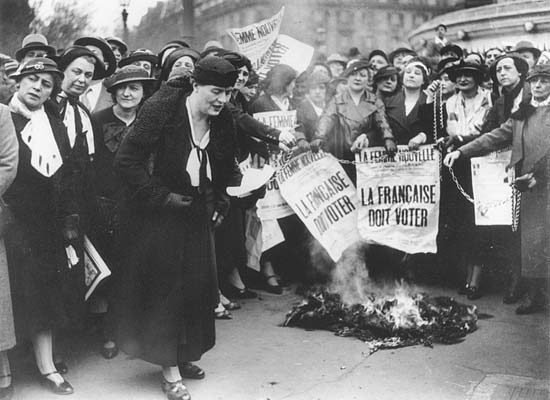
Louise Weiss along with other suffragettes in 1935. The bold text on the newspaper reads
‘The Frenchwoman must vote’.
Louise Weiss
The oldest member of the newly elected parliament was French politician Louise Weiss (1893–1983). She was a journalist, politician, feminist and lifelong champion of European values and women’s rights and an influential voice in French and international affairs from the 1920s until her death in 1983. She co-founded the journal ‘L’Europe Nouvelle’ and later she created a movement advocating women’s suffrage in France.
She became the oldest member of the European Parliament in 1979. As the oldest member, at aged 86, she presided over the chamber until an election could be held amongst the parliamentary members to elect a new President for the parliament.
However, during the first few minutes of the first directly elected European Parliament in 1979, she had to deal with a public protest by the Northern Irish Democratic Unionist party MEP Ian Paisley. She apparently enjoyed and is credited with effectively handling the confrontation with Paisley who claimed that:
‘the Union Jack was flying upside down outside the Strasbourg building. This publicity stunt was deftly despatched (by Weiss). The ‘doyenne’ later confided that, as a grandmother, she was used to dealing with recalcitrant youngsters. She might also have said that she had encountered bigger obstacles during her four years in the French resistance.
Simone Veil
Weiss presided over the Parliament chamber until an election could take place in July 1979 when another French MEP Simone Veil was elected as the first president of the directly elected European Parliament, becoming the first president elected by universal suffrage. She was a survivor of the Nazi concentration camps and central figure of feminism in Europe.
There were five candidates who stood for the position. They were:
‘Giorgio Amendola, Italian Communist; Emma Bonino, Italian Technical Independent; Christian de La Malène, French Progressive Democrat; Simone Veil, French Liberal and and Mario Zagari,Italian Socialist. In the first ballot, Veil secured 183 of the 380 votes cast – eight short of the absolute majority needed. The next closest contender was Zagari with 118 votes, then Amendola with 44, de la Malène with 26 and Bonino with 9. Bonino and de la Malène dropped out and Veil secured an absolute majority in the second ballot with 192 of the 377 votes cast (Zagari gained 128 and Amendola 47). Veil was elected as the first President of the elected Parliament, and first female President of the Parliament since it was founded in 1952.
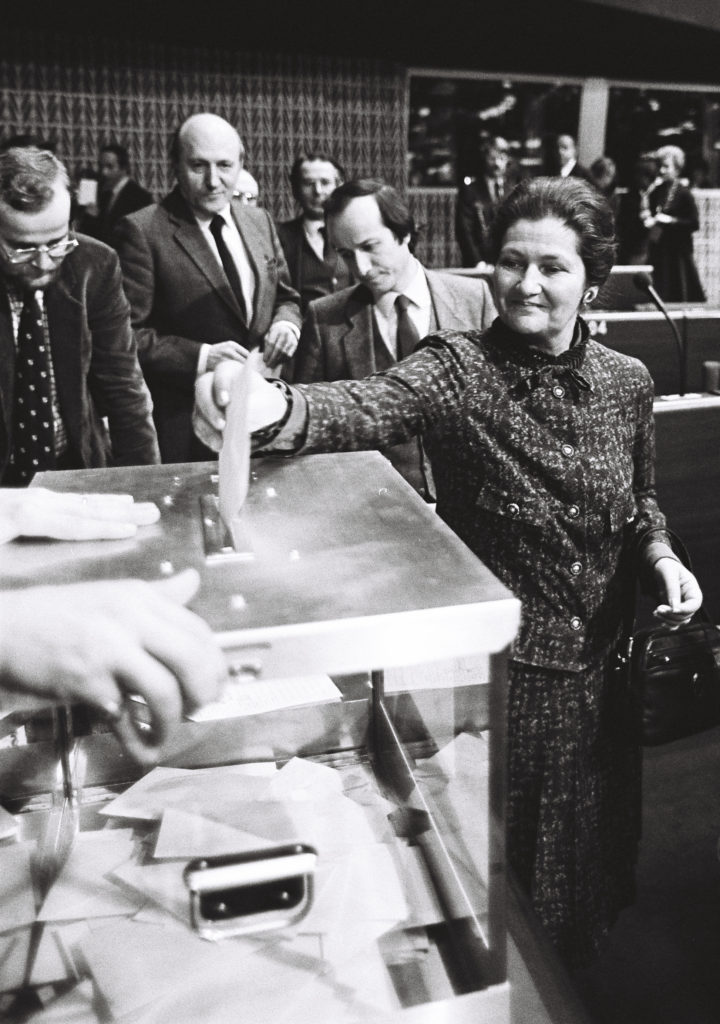
Simone Veil (1927-2017) was a French lawyer, politician and feminist. As a survivor of the Holocaust, Veil found it hard to understand how one European country could wage war on another and she became committed to the idea of a Europe in which such atrocities as happened during WWII could never happen again.
Simone Veil believed standing up for freedom was essential in the fight against totalitarianism. In Simone’s acceptance Speech for Presidency of the EU Parliament on 17 July 1979, she stated that she saw the EU as a place ‘of solidarity between people, regions and individuals . . to strengthen that freedom whose value is too often not realised until it has been lost, (a place where) the views of all community citizens can be voiced at a European level . . founded on a common heritage and the shared respect for fundamental human values’.
Simone Veil passed away on 30 June 2017 and became only the fourth woman to be buried in the French Panthéon in Paris, a place where France celebrates its ‘great men and women’. She was one of France’s most revered politicians, known for her battle as health minister to legalise contraception and abortion. She was elected Minister of Health in France in 1974.
Today elections to the European parliament take place every five years through universal adult suffrage with over 400 million people eligible to vote. 751 MEP’s are directly elected to the European parliament which is the only body in the EU that is directly elected by citizens of Europe. The other bodies such as the Council of the European Union and the European Council are elected through national governments.
Inspiring Women Who Played a Key Role in EU
You don’t have to be an elected MEP to help shape Europe.
Click here to read the stories of several more inspiring women
Four Biographies of Inspiring Women
In addition to the biographies of the 67 women elected to the first European parliamentary elections, we are also including the biographies of four women who were not involved in that parliament.
When you click the link above, you will be able to read the biographies of four extraordinary women who played a key role in the development of the EU. Those women were Ursula Hirschmann (1913-1991) from Germany who was a committed anti-Fascist and founding European federalist and Nicole Fontaine (1942-2018) from France who was a politician and educator and who became the European Parliament’s second female President. Nicole was a persuasive politician and devoted champion of Europe who oversaw the adoption of the euro and the implementation of the EU Charter of Fundamental Rights. She played a key role in promoting human rights throughout her lifetime.
Melina Mecouri (1920-1994) was a Greek actor, politician and a champion of culture. She became famous as an actor on stage and in film and spent many years campaigning around the world for the removal of the military junta in Greece. After democracy was restored in 1974, she became Minister of Culture for Greece and a champion of Greek and European culture and she played a key role in the European Capital of Culture initiative. The fourth person is Dutch woman Marga Klompé (1912-1986) who was a scientist, politician and champion of the underprivileged. She was active in the Dutch resistance and was one of the negotiators for the United Nations Declaration of Human Rights. In 1956 she became the Netherland’s first female government minister.






